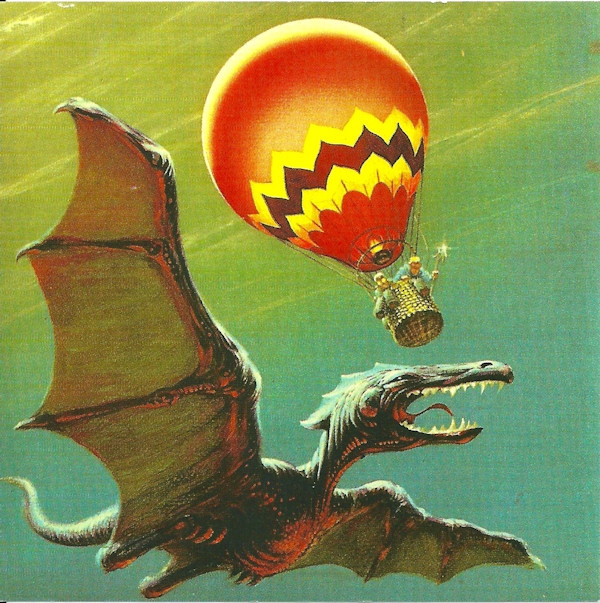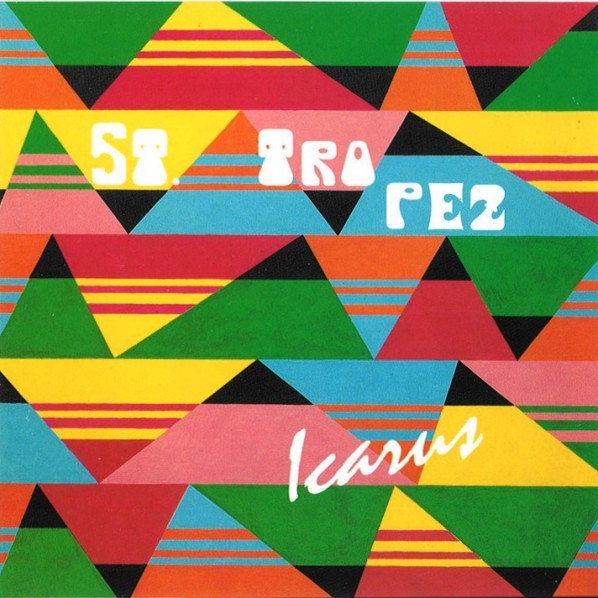
Exposé Online
What's old
Exposé print issues (1993-2011)
- 1 (October 1993)
- 2 (February 1994)
- 3 (May 1994)
- 4 (August 1994)
- 5 (October 1994)
- 6 (March 1995)
- 7 (July 1995)
- 8 (November 1995)
- 9 (March 1996)
- 10 (August 1996)
- 11 (February 1997)
- 12 (May 1997)
- 13 (October 1997)
- 14 (February 1998)
- 15 (July 1998)
- 16 (January 1999)
- 17 (April 1999)
- 18 (November 1999)
- 19 (May 2000)
- 20 (October 2000)
- 21 (March 2001)
- 22 (July 2001)
- 23 (December 2001)
- 24 (April 2002)
- 25 (September 2002)
- 26 (February 2003)
- 27 (August 2003)
- 28 (December 2003)
- 29 (April 2004)
- 30 (September 2004)
- 31 (March 2005)
- 32 (September 2005)
- 33 (May 2006)
- 34 (March 2007)
- 35 (January 2008)
- 36 (October 2008)
- 37 (July 2009)
- 38 (July 2010)
- 39 (Summer 2011)
Reviews
La Compagnia Digitale — La Compagnia Digitale
(Mellow MMP 109, 1979/1992, CD)
St.Tropez — Icarus
(Mellow MMP 105, 1978/1992, CD)


Both of these groups contain percussionist/synthesist Ciro Perrino in their ranks. These groups were both post-Celeste and showed a vast change in style from that group. You may have heard Ozric Tentacles referenced in relation to these, which I suppose is a clever ploy to ride the coattails for sales. This isn't entirely true – like the Ozrics, these two bands were influenced by the space rock of Gong and Steve Hillage, yet both groups were far more original and definitely more complex than Ozrics. St Tropez's female vocalist draws it even closer to Gong, but in reality she sounds less like Gilli Smyth and more like a crazed Italian Jerney Kaagman (Earth & Fire). The music is space rock, but not as spiritually intense as Gong; the jams here are more free and spiraling. La Compagnia Digitale is similar (sans vocals); overall there’s less music, longer tracks, and more overall coherency. The quality on both of these is good for what must have either been demos or personal recordings, yet the bands tend to be a bit shaky and not very tight (not at all like mid-period Gong). Definitely not as sonically rich as Ozrics or Gong yet interesting nonetheless. Start with Icarus.
by Mike McLatchey, Published 1996-08-01
[Regarding Icarus:]
A bit of history. In the beginning there was Il Sistema, an Italian group that recorded what would become a double album, Il Viaggio senza Andata, between 1969 and 1971, the de-facto leader of the band being percussionist, flutist, singer, and keyboardist Ciro Perrino. That album, recording completed but never released, would sit on the shelf until 1991, when it finally saw the light of day. After Il Sistema called it a day, Perrino and bandmate Leonardo Lagorio began their next project with a number of additional musicians, Celeste, whose debut album Principe di un Giorno was released in 1976, a gentle symphonic styled record which to this day remains one of the hallmarks of Italian progressive rock. A second album simply titled Celeste II was recorded at the end of that year, but never released, again the recordings lost to time until their eventual release in 1991, both on LP and, with some additional tracks, CD, along with a soundtrack album that the band recorded in 1974. After the demise of Celeste around 1977, a new band was formed by Perrino, St. Tropez, with some other ex-members of Celeste (drummer Francesco Dimasi, bassist Giorgio Battaglia) as well as some new members, guitarist, bassist and singer Alex Magazzino and female singer Lady Mantide, although by the time the recordings were completed in 1978, there had already been some turnover in the ranks, especially in the rhythm section. Even though St. Tropez grew out of Celeste, the musical styles explored on Icarus couldn’t be more different, moving into a more space rock direction, with an abundance of synthesizers, sequencers, and electronics, as well as flute, marimba, glockenspiel, and other tuned percussion, all played by Perrino (who also sang on some of the tracks), and the addition of Lady Mantide makes for a really interesting sound, her high pitched spacy vocals often treated to whammy and wah effects. Magazzino’s searing guitar leads are a highlight of many of the ten original tracks. Two of the tracks in particular, the opener “Noccioline, Caramelle, Gelati” and “Re Del Deserto” are extended pieces breaking the eleven and twelve minute marks respectively, while the remaining eight tracks settle out somewhere between five and nine, some with more of an edgy space-rock sound, but there is plenty of variety to be found therewithin. As mentioned before, these recordings were completed in 1978, but the album never received a proper release until the 90s, and with fresh remastering and some bonus tracks (two on the LP, one on the CD, and all three if one downloads it) this is now the reissue of the original archival release from ‘92, and certainly Icarus is sounding better than ever before.
by Peter Thelen, Published 2021-08-31
Filed under: New releases, Issue 10, 1992 releases, 1979 recordings, 1978 recordings
Related artist(s): St Tropez, La Compagnia Digitale
What's new
These are the most recent changes made to artists, releases, and articles.
- Release: Thierry Zaboitzeff - Artefacts
Updated 2026-02-27 00:16:46 - Review: Kevin Kastning - Codex I & Codex II
Published 2026-02-27 - Release: Zan Zone - The Rock Is Still Rollin'
Updated 2026-02-26 23:26:09 - Release: The Leemoo Gang - A Family Business
Updated 2026-02-26 23:07:29 - Release: Ciolkowska - Bomba Nastoyashchego
Updated 2026-02-26 13:08:55 - Review: Immensity Crumb - Chamber Music for Sleeping Giants
Published 2026-02-26 - Release: The Gatekeepers - Diary of a Teenage Prophet
Updated 2026-02-25 15:55:58 - Review: Mars Lasar - Grand Canyon
Published 2026-02-25 - Listen and discover: Mordecai Smyth will not break your back
Published 2026-02-25 - Release: Tashi Wada - What Is Not Strange?
Updated 2026-02-24 14:56:16 - Artist: Tashi Wada
Updated 2026-02-24 14:54:34 - Release: Greg Segal - Maintain!
Updated 2026-02-24 00:38:03 - Review: Il Segno del Comando - Sublimazione - Live
Published 2026-02-24 - Review: Nektar - Mission to Mars & Fortyfied
Published 2026-02-23 - Review: Jaime Rosas - Tres Piezas de Rock Progresivo
Published 2026-02-22 - Release: Kevin Kastning & Bruno Råberg - Across Tall Rain
Updated 2026-02-21 00:42:08 - Review: Gary Husband - Postcards from the Past
Published 2026-02-21 - Release: Daniel Crommie - Februa
Updated 2026-02-20 14:23:17
